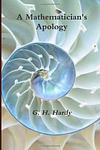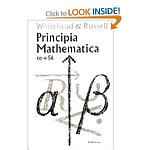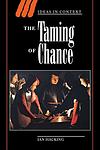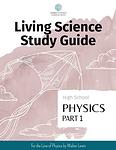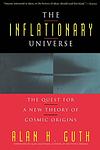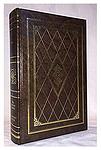The Greatest "Cambridge, Nonfiction" Books of All Time
Click to learn how this list is calculated.
This list represents a comprehensive and trusted collection of the greatest books. Developed through a specialized algorithm, it brings together 300 'best of' book lists to form a definitive guide to the world's most acclaimed books. For those interested in how these books are chosen, additional details can be found on the rankings page.
Genres
Countries
Date Range
Reading Statistics
Click the button below to see how many of these books you've read!
Download
If you're interested in downloading this list as a CSV file for use in a spreadsheet application, you can easily do so by clicking the button below. Please note that to ensure a manageable file size and faster download, the CSV will include details for only the first 500 books.
Download-
1. The Double Helix: A Personal Account of the Discovery of the Structure of DNA by James D. Watson
This book is a personal account of the race to discover the structure of DNA, told from the perspective of one of the co-discoverers. It provides an insider's view of scientific research, the collaboration and competition, the dedication, the doubt, the exhilaration of discovery, and the often fraught relationship between science and the rest of life. The book also explores the personalities, quirks, and conflicts of the scientists involved in the groundbreaking discovery.
-
2. Principia Mathematica by Isaac Newton
This seminal work is a comprehensive exploration of classical physics, laying the groundwork for much of modern science. The author presents his three laws of motion and law of universal gravitation, effectively bridging the gap between the abstract world of mathematics and real-world phenomena. The book also delves into the principles of calculus, a mathematical discipline the author significantly developed. This work has had a profound influence on the scientific understanding of the physical universe.
-
3. A Mathematician's Apology by G. H. Hardy
"A Mathematician's Apology" is a deeply personal reflection on the beauty and importance of pure mathematics. The author, a renowned mathematician, defends the pursuit of mathematics for its own sake, arguing it's a creative art form akin to poetry or painting. The book provides insight into the mind of a working mathematician and the aesthetic appeal of mathematics, while also discussing its practical utility and the author's own work on number theory and the theory of prime numbers.
-
4. The Principia Mathematica by Alfred North Whitehead, Bertrand Russell
The Principia Mathematica is a three-volume work on the foundations of mathematics, written with the goal of deriving all mathematical truths from a well-defined set of axioms and inference rules in symbolic logic. The authors aim to show that mathematics is a development of logic and avoid any hidden assumptions. The work covers topics like class theory, relation theory, and quantity theory, and it is known for its rigorous and meticulous approach.
-
5. The Character Of Physical Law by Richard P. Feynman
"The Character of Physical Law" is a collection of lectures that explores the nature of the laws of physics. The book delves into the principles that govern the physical universe, discussing topics such as the relationship between mathematics and physics, the role of symmetry in physical laws, and the conservation principles that underpin the laws of nature. Through engaging and accessible language, the author provides insights into how physicists think about problems and develop theories, emphasizing the beauty and simplicity inherent in nature's laws. The work also reflects on the philosophical implications of scientific discoveries and the interconnectedness of various physical phenomena.
-
6. The Taming of Chance by Ian Hacking
"The Taming of Chance" delves into the evolution of the concept of probability and its societal implications. The book takes the reader through the historical progression of probability and statistics, illustrating how they have shaped and been shaped by societal norms. The author highlights the profound impact of this mathematical concept on various aspects of life, including law, science, and philosophy, and how it has fundamentally changed our perception of the world.
-
7. Science and the Modern World by Alfred North Whitehead
"Science and the Modern World" is a philosophical exploration of the impact of scientific advancement on contemporary society. The author examines the development of science and its historical influence, asserting that modern science has transformed our understanding of the world and ourselves. He explores the philosophical implications of scientific discoveries, discussing topics such as the nature of matter, time, space, and the relationship between mind and body. He also critiques materialistic and mechanistic views of the universe, advocating for a holistic and organic worldview.
-
8. For The Love Of Physics by Walter Lewin
This book is a captivating journey through the wonders of physics, written by a renowned professor known for his dynamic teaching style. It explores the beauty and excitement of the physical world, from the smallest particles to the vastness of the cosmos. Through personal anecdotes and clear explanations, the author shares his profound love for physics, aiming to inspire readers to see the world through the lens of scientific curiosity. The narrative not only demystifies complex concepts but also highlights the role of physics in everyday life, making it an engaging read for both novices and those familiar with the subject.
-
9. The Metaphysical Club: A Story of Ideas by Louis Menand
"The Metaphysical Club: A Story of Ideas" is a historical account of the development of pragmatism, one of America's most significant philosophical movements. The book explores the lives and intellectual journeys of four influential thinkers - Oliver Wendell Holmes Jr., William James, Charles Sanders Peirce, and John Dewey. The narrative centers around the Metaphysical Club, a conversational group these men formed in Cambridge, Massachusetts, in 1872. Through their discussions, they developed the pragmatist belief that ideas are not mere reflections of reality but tools for action and problem-solving. The book also examines how their ideas influenced American thought and policy in areas such as law, education, and social reform.
-
10. The Inflationary Universe by Alan Guth
The book explores the concept of cosmic inflation, a theory suggesting that the universe underwent an exponential expansion in the first fractions of a second after the Big Bang. This expansion explains several puzzling aspects of the universe, such as its large-scale uniformity and geometry. The author, a prominent physicist, details the development of the inflationary model, discussing both the theoretical motivations and the empirical evidence supporting it. The narrative also delves into the implications of inflation for understanding the origin of the observable universe and the fundamental physics governing it, providing a comprehensive overview of one of the most influential ideas in modern cosmology.
-
11. Charles W. Eliot by Henry James
This biography delves into the life and career of Charles W. Eliot, an influential figure in American education who served as the president of Harvard University for forty years. The book provides an in-depth look at Eliot's progressive educational philosophies, his efforts to transform Harvard into a leading research university, and his significant impact on American higher education. The author also explores Eliot's personal life, highlighting his character, values, and the experiences that shaped his approach to education.
-
12. The Thought and Character of William James by Ralph Barton Perry
This book is an in-depth exploration of the life and philosophy of William James, a prominent psychologist and philosopher. The author delves into James' personal life, his upbringing, and his intellectual development, providing a comprehensive analysis of his philosophical beliefs, theories, and contributions to pragmatism. The book also offers a detailed examination of James' thoughts on subjects such as religion, psychology, and metaphysics. It serves as a valuable resource for those interested in understanding the mind and character of this influential thinker.
Reading Statistics
Click the button below to see how many of these books you've read!
Download
If you're interested in downloading this list as a CSV file for use in a spreadsheet application, you can easily do so by clicking the button below. Please note that to ensure a manageable file size and faster download, the CSV will include details for only the first 500 books.
Download

